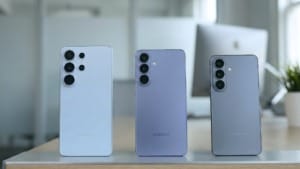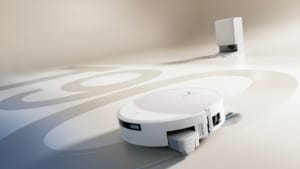Early cancer detection startup Craif raises US$22M to expand into the U.S.
Craif raises $22M to expand its microRNA early cancer detection technology into the U.S., aiming to make testing simple and accessible.

Cancer continues to be one of the leading causes of death across the world. In 2022, the National Cancer Institute reported nearly 20 million new cancer cases and around 9.7 million deaths linked to cancer. Sadly, this number is expected to rise, with estimates showing almost 30 million new cases by 2040.
Table Of Content
One company that is determined to help change this is Craif, a startup born out of Nagoya University in Japan in 2018. Craif uses microRNA (miRNA) technology to power an AI-based early cancer detection test. Recently, the company secured US$22 million in Series C funding to strengthen its research and expand into the U.S. market.
Craif’s journey and mission
Craif’s co-founder and CEO, Ryuichi Onose, explained that the Series C funding round valued the company at just under US$100 million. Led by X&KSK, an existing investor, the round also included new backing from the U.S.-based Unreasonable Group — its first investment in a Japanese startup — along with TAUNS Laboratories, Daiwa House Industry, and Aozora Bank Group. In total, Craif has now raised US$57 million.
The story behind Craif is deeply personal. After watching both of his grandparents battle cancer, Onose felt a strong need to find a better way to detect the disease early. He met Takao Yasui, an associate professor at Nagoya University, and just a month later, they founded Craif. Yasui had developed a new way to detect cancer early using biomarkers found in urine.
Onose believes that detecting cancer early is still very difficult. Traditional blood tests are often invasive and can prevent people from getting screened. Also, many people living in remote areas struggle to access the necessary medical facilities. Craif aims to fill these gaps by offering a non-invasive, urine-based test that allows for early cancer detection, even when the cancer is still at Stage 1.
“Our test can be taken easily at home, using advanced microRNA analysis to make early detection more accessible,” Onose shared. “We focus on individuals who are health-conscious but may find regular cancer screenings too costly, time-consuming, or difficult to access.”
How Craif stands out from the competition
Several startups, such as Grail, Freenome, DELFI Diagnostics, and Clearnote Health, also work on early cancer detection. However, Craif believes it has a unique advantage. While most others use cfDNA (cell-free DNA), Craif focuses on microRNA and collects samples through urine.
Onose pointed out that microRNA has recently gained more attention after being linked to the 2024 Nobel Prize. MicroRNA is secreted by early-stage cancer cells, making it a strong signal for early detection, unlike cfDNA. Plus, urine samples are simple to collect and have fewer impurities than blood, which helps reduce errors and costs.
Using urinary microRNA, Craif’s first product, miSignal, detects the risk of seven types of cancer—pancreatic, colorectal, lung, stomach, oesophagus, breast, and ovarian. The product is already generating revenue in Japan through clinics, pharmacies, direct-to-consumer sales, and corporate wellness programmes.
“We are partnered with over 1,000 medical institutions and about 600 pharmacies, serving around 20,000 users,” said Onose. Craif’s team has grown to 73 employees.
Customers can buy single tests or opt for subscription packages, which many prefer. In 2024, Craif reported $5 million in revenue and hopes to reach $15 million by the end of this year.
Future plans and U.S. expansion
Looking ahead, Craif plans to expand miSignal’s reach to test for ten different types of cancers. The company also has plans to use its technology to detect other diseases, including neurodegenerative disorders like dementia.
Craif already runs a research lab in Irvine, California, and plans to open a new office in San Diego for its U.S. business operations. The fresh funding will drive Craif’s move into the U.S. market, aiming to complete clinical trials by 2029 and submit its product for FDA approval.
Craif has started working with 30 medical institutions across 15 U.S. states to collect pancreatic cancer samples.
With a clear vision and growing support, Craif aims to make early cancer detection easier, quicker, and more available to everyone.
















